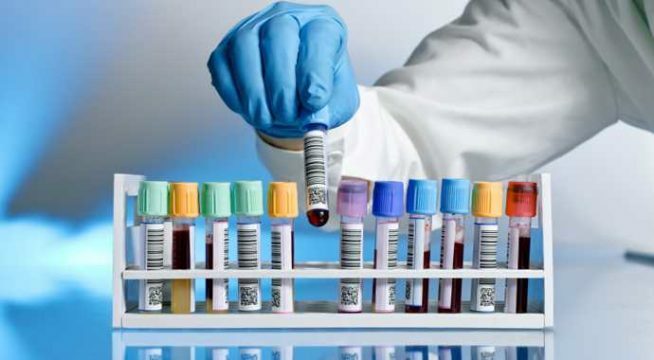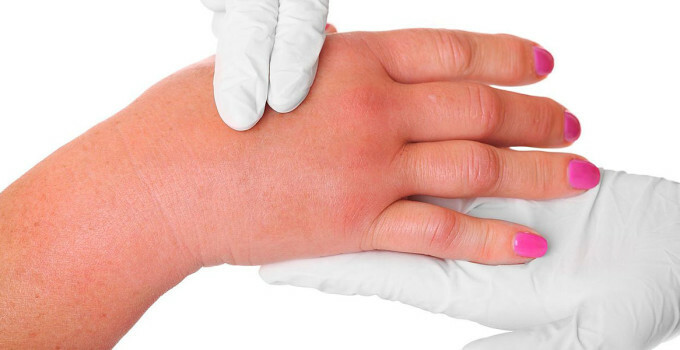Endocrine diseases rank second in the world after cardiovascular prevalence. Unfortunately, children are also affected, from the very youngest age. How to distinguish a child from thyroid disease?

What is hypothyroidism
? The disease is characterized by a deficiency of thyroid function, in which few thyroid hormones are produced. It is worth saying that the course of hypothyroidism in children differs from the clinical picture of the disease in adults.
In the first weeks of pre-natal development, the fetus receives maternal hormones. From the third month, the thyroid gland of the child begins to function, therefore it depends less on the parent hormones.
Deficiency of thyroid hormones in children leads to inadequate development and mental retardation, because already in the first days of life the child undergoes a study of the concentration of T4, TSH, thyreoglobulin.
By nature, childhood hypothyroidism can be congenital and acquired, and depending on the severity of symptoms of hypothyroidism in children distinguish between manifest, transient and subclinical. Depending on the pathology of hormone secretion, hypothalamic, thyreogenic and pituitary are secreted.
Clinical picture of
Symptoms of hypothyroidism in children differ significantly from the clinical picture observed in adults with a similar disease. The most vivid symptoms in a child: 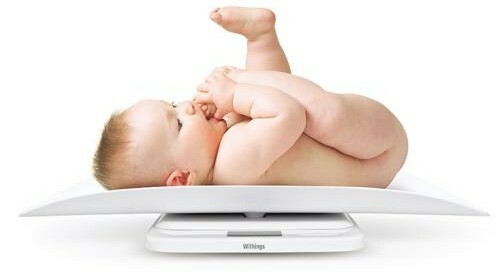
- Skeletal deformities, cretinism, deafness, mental retardation and underdevelopment of the genital organs - such signs are observed in children who received insufficient amount of hormones during the intrauterine development.
- If a child weighs more than four kilograms at birth and shows obvious swelling on the face, including tongue and eyelids, crying is accompanied by a rough voice and heavy breathing, doctors may suspect a diagnosis before receiving the results of the study.
- The appearance of umbilical hernia and long healing of the wound from the umbilical cord, the long duration of jaundice.
- Drowsiness, weakness, lethargy from birth to 2 years of age, lag in physical development, later teething.
In a child under one year of age, symptoms may be very weak and not cause suspicion if manifested only in lethargy and drowsiness.
In most cases, these children later start to hold their own head, crawl, sit, lack interest in the world around them, and lack of emotion.
Diagnosis of hypothyroidism in children begins in an emergency after detection of anemia, cardiac muscle pathologies, constipation, pallor.
Because of a wide range of symptoms, all children under two years of age are necessarily examined for thyroid hormones.
Congenital disease
Congenital hypothyroidism means a low thyroid function and a decreased secretion of thyroid-stimulating hormone in newly born children. Statistics show that more girls suffer from congenital hypothyroidism.
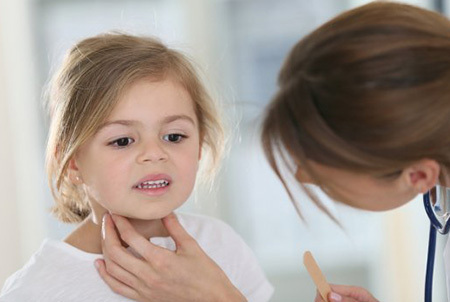
The causes of congenital hypothyroidism are:
- Disturbances in the development of the thyroid gland during intrauterine fetal maturation, genetic predispositions.
- Immunity to iodine, disruption of the transport of hormones and enzymes.
- More serious causes of the disease are disorders in the maturation of the brain, in particular, the defeat of the hypothalamus, responsible for the regulation of the production and secretion of hormones.
- If during pregnancy the future mother took antithyroid drugs, developed resistance to thyroid hormones is possible.
Having discovered the disease, do not despair. Hypothyroidism is not always completely curable, but competent diagnosis and treatment of hypothyroidism in children can significantly improve the quality of life and development of the baby.
Subclinical form of
Subclinical hypothyroidism in children is most often observed in children 2-4 years old. His picture, especially when carrying out a blood test, is quite bright: the hormone T4 is within normal limits, while the TSH is increased. Such a disease can be detected in girls for the first time and at 5 years, but in childhood it is effectively treated.
The cause of the development of such hypothyroidism is the primary disease - autoimmune thyroiditis, in which the cells of the thyroid gland are directly destroyed. In fact, the body perceives iron as a source of foreign bodies - elevated T4.And the antibodies are directed to neutralize the source.
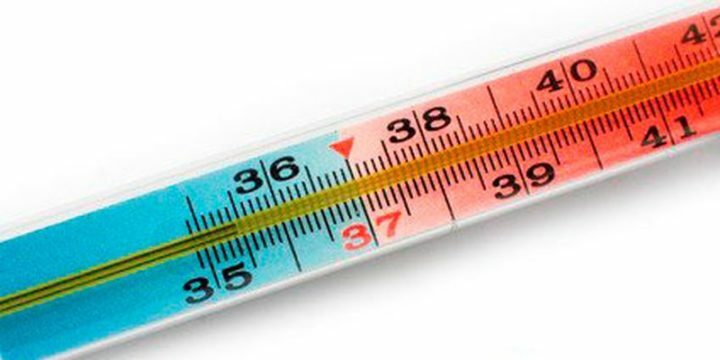
With the timely detection of the disease and its treatment, further therapy is absolutely unnecessary. Symptoms of the subclinical form of hypothyroidism are as follows:
- Decreased body temperature;
- Weak sucking reflex;
- Refusal of breastfeeding;
- Dryness of the skin;
- Swelling of the hands, feet, eyelids, faces.
These symptoms accompany subclinical hypothyroidism in infancy. But it can be detected in children older than 5 years. In this case, complications associated with the development of the skeleton and brain are possible. Possible deterioration of vision.
For the treatment of such a form hormonal replacement therapy is used, the dosages of which are calculated by the endocrinologist individually according to the diagnostic results.
Diagnostic methods
Determining the level of thyroid hormones in the blood of a child is carried out in the first days of life even before discharge from the hospital. In particular, hormones T4, T3, thyroid-stimulating hormone, as well as antibodies to these substances are determined.
Similar diagnosis is repeated when a suspected disease and primary therapy. For the study, the biomaterial from the vein is taken, the blood plasma is examined.
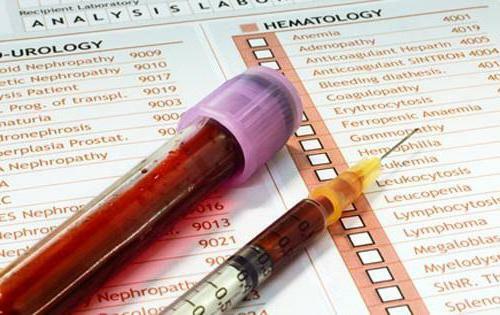
Because such diseases are often accompanied by qualitative changes in the structure of the thyroid gland, as well as its size, ultrasound of the thyroid gland is prescribed. You may need an ECHO-ECG, brain research.
A child diagnosed with hypothyroidism should be observed in the pediatrician, endocrinologist and neurologist, since side effects in the central and autonomic nervous system are possible.
Treatment methods
Therapy should be started as soon as the disease is identified. The effect of antibodies on the thyroid gland can be devastating, and to preserve the body for the further functioning of the treatment begin as early as possible.
Therapy implies an integrated approach. The main role is played by hormone replacement therapy - the child is prescribed hormones based on thyroid hormones. This does not always mean that taking hormones will last a lifetime.
Acquired hypothyroidism requires a constant dosage adjustment and in the end result can lead to a complete rejection of hormonal drugs. If the disease is congenital and similar pathologies are observed in the mother, it is likely that the thyroid hormone drugs will have to last a lifetime, since the thyroid gland is simply not developed to the level necessary to learn how to produce a hormone.
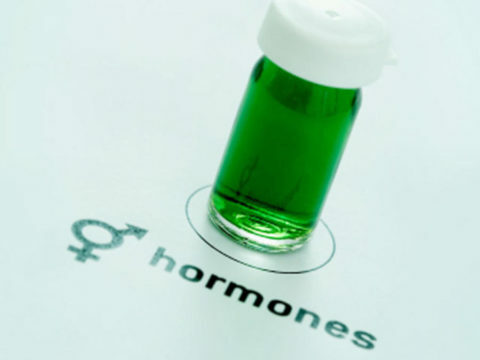
It is necessary to carefully monitor the immune system of the child and pick up a complex of vitamins and miners with the pediatrician, since such children are more susceptible to viral and infectious diseases.
A significant contribution to treatment is brought by the diet. When hypothyroidism should be abandoned:
- Light carbohydrates - sweet, butter, flour, potatoes, bananas.
- Products with increased cholesterol index - fats, oils, fatty fish, poultry, meat.
- Canned food and pickles, as patients are banned from excess fluid and salt, which causes fluid accumulation.
Moderate physical activity and the preservation of the thyroid gland from mechanical damage also play a role in the successful tactics of treating hypothyroidism.
Forecast
With timely detection of diseases of the thyroid gland, especially in subclinical and congenital forms, hypothyroidism is treatable and does not require lifelong admission of hormones. The faster the substitution therapy begins, the less harm will be done to the child's body.
If a congenital form is found, it is necessary to choose a substitute therapy correctly and be constantly observed in a pediatric endocrinologist. This guarantees the full development and life of the child.

